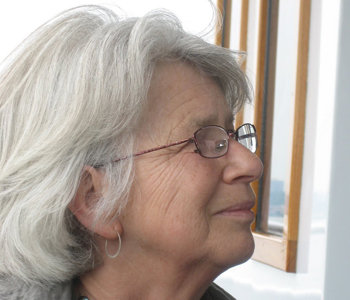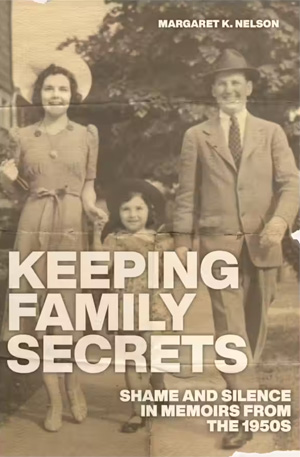
These days, families stream their pleasures in various activities: a child’s first dance performance; hiking on a fall day; joyful and serious rites of passage; home-cooked meals; and holiday parties. These images represent the way we want others to see us and the way we wish we always were. Yet, as every member of every family knows, these are partial images. They ignore (and for a moment let us forget) other realities of our private lives: the everyday hassles, the times when we wound each other, the cranky children, the sullen partner.
In many families, members comfortably cross the line between the way they wish they were and the way they often are. They might not want to share some knowledge about their private lives with outsiders (and even with each other), but they suspect no one will be surprised or shocked to learn that the parents fight, that the children misbehave, and that the Thanksgiving dinner ended with overcooked turkey and slammed doors. But in some families what gets concealed by the Instagram feed is so deeply significant that great effort is taken to deny it.
In this book I explore that effort as it occurs through the creation and maintenance of family secrets. I draw on over 150 memoirs about growing up in the United States after World War II and before the transformations of the 1960s. I use these memoirs to discuss four different secrets people kept from other family members and especially from those outside the family. The four secrets include having same-sex sexual attractions as boys, being pregnant and unwed, having an institutionalized sibling, and living with parents who were Communists. I also investigate what happened when adults discovered that parents had kept secrets from them during their childhoods. These secrets included learning that one or both parents were Jewish (or African American) and learning that they had been adopted (or conceived outside of the marital union).
The book is unique both in its use of memoirs as the data for analysis and in its focus on family secrets from a sociological perspective. The introduction reviews the relevant literature and might be a bit tedious for a lay reader. The individual chapters can be read without that preliminary material and because the chapters stand alone, readers can pick and choose among them, focusing on whatever they find to be of the most interest.
Ethicists, philosophers, historians, communication scholars and therapists have had primacy in the study of family secrets. Few sociologists have joined in. But family secrets are important to understanding family life for that discipline too. They reveal the impact of the public world on the family by showing what society deems as acceptable behavior along with what it deems otherwise. An analysis of family secrets also allows us to explore the internal dynamics of family life including the emergence of disruptions and the creation of intimacies. As the analysis in the book reveals, family members are willing to abuse each other to protect themselves and other members of the family from the shame (and danger) that would ensue were outsiders to access their secrets. Finally, the study of the family secrets of the post-WWII era also helps us understand the dangers inherent in the specifics of that era’s demand for its idealized family form, idealized family dynamics, and idealized beliefs. As such it provokes thoughts about how families are judged, about how families are made, and about alternative models for living together.
I have been studying family life for much of my (now long) career as a sociologist. In previous work I looked at such topics as how families made ends meet during hard economic times, how and why what some call “helicopter parents” hovered over their children, and the differences between being a family member and being someone considered to be “like” a member of a family (e.g., a close friend thought of as being “like” a brother or sister). My interest in the internal dynamics of families eventually led me to consider the impact of family secrets on those dynamics. My own childhood—having grown up in the Post WWII era—led me to focus on that particularly secretive time in the history of the United States.
Each of the chapters begins with a case study, the first-person story of an individual who held, or discovered, a family secret. A close friend of mine browsed through the book and became hooked when she read page 78, the opening to chapter 3. That opening examined the story of a young girl who was desperately trying to keep her mother from knowing that she was pregnant. Because she had been forced to give up a baby for adoption, my friend identified with the girl in that story, and she wanted to know more about that kind of secret. My brother became interested in the book when he read page 17, the opening to chapter 1, with its evidence of parents keeping silent about the institutionalization of a child. He felt that the silence in that family mirrored the silence in our own. One of my colleagues especially appreciated the first page of chapter 4 because, as a historian, she was interested in the surveillance of families in which one member was known to be (or thought to be) a Communist. I would hope that a casual reader would begin any one of the substantive chapters and become similarly interested in reading more. And I would hope that having become interested, that reader might go back to the beginning and then explore the conclusion to assess the conceptual apparatus that frames the individual chapters.
It seems to me that our society now is going in entirely the wrong direction with respect to secrets. What is called the “Don’t say Gay” law in Florida is an example: teachers and students cannot discuss gender identity and sexual orientation until grade 4 and even then must be careful. Or we could consider how the Supreme Court Dobbs decision means that in some states even trying to buy—or helping someone else buy—an abortion pill like Mifepristone could put someone in danger. And, of course, undocumented immigrants have long had to conceal their status from others.
I would hope that readers of this book would think about the ways in which social norms and social policies require that individuals—on their own and as members of families—keep secrets from other people. During the period I studied, the shame attached to bearing a child out of wedlock meant that young girls were often sent away during their pregnancies and were then forced to relinquish babies for adoption. I would also hope that readers of this book would then think about the costs of keeping secrets. During the 1950s, when children with Down Syndrome and other disabling conditions were institutionalized, the siblings of those children experienced unexplained and unbearable loss. Finally, I would hope that the readers of this book would think about whether changes in social norms and social policies could make for a more open society in which individuals do not bear the burden of silence.


Margaret K. Nelson is the A. Baton Hepburn Professor of Sociology Emerita at Middlebury College. Most recently she is the author of Keeping Family Secrets: Shame and Silence in Memoirs from the 1950s and co-author with Emily K. Abel of both Limited Choice: A Black Children’s Nurse in a Northern White Household and the forthcoming book, The Farm & Wilderness Summer Camps: Progressive Ideals in the Twentieth Century.